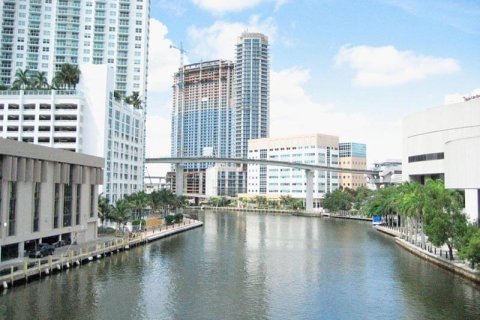
In general, in 2022, the Florida real estate market remains quite hot, even overheated. It is expected that it will remain at the same level throughout this year.
This is the best-case scenario for sellers. Due to a small supply, housing demand is extremely high and continues to grow in the state. For buyers, on the contrary, the situation becomes more difficult, including rising interest rates on mortgage lending and inflation. In the first quarter of this year, the number of closed contracts for property acquisition in Florida was slightly lower than in 2021.
Starting in the first quarter of 2021 and continuing into the first quarter of 2022, median prices increased by 21.3%, to $385,000. The number of residential units for sale decreased by 10.2%, to 28,436 units. The number of closed buying contracts dropped by 2.6%, to 76,339 transactions. Interest on a 15 year mortgage with a fixed rate increased by 32.46%, to 3.02%.
At the same time, over the year, the selling speed increased by 17.2% or up to 53 days.
When compared to the national market, Florida's housing market is much hotter than the national average. In the US, the average home price rose by 20.9% in annual terms. And in return, Florida grew by 31.4%. Arizona and Tennessee came in second and third places, with 28.7% and 26.7%, respectively.
Florida remains the leader among urban agglomerations. Tampa, a city located on the shore of the Gulf of Mexico (note: Florida's Gulf Coast), showed the highest annual growth in residential property prices for the end of March 2022, about 32.5%, among the 20 largest cities and their agglomerations in the United States.
Orlando is another city that has shown impressive results at the national level. It was described as the most successful in improving the overall market performance. It also attracted huge attention from potential buyers from Miami, New York, and Washington.
Predictions for 2022
In considering the below-mentioned forecasts, it is worth remembering that rising mortgage interest rates can make a significant difference in the expected development of the market.
High mortgage interest rates can slow price growth. Very high prices and the lack of a profitable alternative, such as a mortgage loan, can scare away a large number of buyers from the market. This will dampen total demand and give real estate developers a breathing space to bring more residential units to the market. Thus, some balance of supply and demand will be restored.
Home sales will decline, although only marginally. Over the past 15 years, the supply of new real estate in the Florida market has been below population growth. The situation was exacerbated by the high migration during the pandemic, with a high influx of wealthy buyers who could buy a lot of properties at a high price. High competition leads to the trend indicated above. More buyers find fewer available offers.
Affordable housing will be in high demand. It means that these residential properties will become less affordable very quickly. Increased attention, however, will not only rely on people who look for housing they can afford. Wealthy buyers will pay their attention, and for a fairly simple reason. In 2021, luxury real estate was in the spotlight. In a year, the supply has almost dried up. The attention of investors and wealthy buyers naturally migrates to segments with a big offer. In particular, it is necessary to draw attention to Naples and the North Fort area.
Small Florida markets will get more attention, especially on the west coast of the state. As remote employment continues to rise, and for the reasons stated above, a lot of people's attention will be directed outside of major cities, to the suburbs and provinces. Special attention must be given to the markets of the Panhandle, the city of Lakeland, Fort Myers, and Melbourne.
